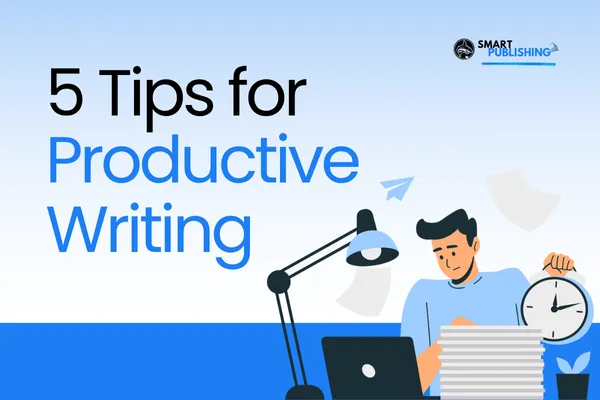
5 Tips for Productive Writing (Even When You Don’t Feel Inspired)
5 Tips for Productive Writing (Even When You Don’t Feel Inspired)
📘 Smart Publishing Impact Series – Episode 41
Have you ever sat down to write and thought, “I’ve talked about everything already”?
That was me this morning. Forty-one episodes into this podcast and I stared at my mic like, Okay… now what?
So I did what all smart creators do when inspiration feels dry: I turned to my own book.
And that reminded me—books are the gift that keep on giving. They’re not just something you release and forget. They’re containers of wisdom you can return to over and over again, even as the author.
Today’s episode pulled straight from Chapter 6 of The One Hour Author, and I’m sharing five simple but powerful tips to help you write more productively… even on the days when writing feels like a battle.
Five Tips for Productive Writing
These five tips come from years of coaching authors and coaching myself through the writing process. Whether you’re typing or recording your book, these will move you forward.
1. Minimize Distractions
If your phone is within arm’s reach, it will end up in your hand—usually without you even realizing it.
Here’s what you need to do:
Put your phone far away (silent, notifications off).
Close the door.
Tell your family or housemates when you’re unavailable.
Close all tabs and apps except your manuscript and notes.
Whether you’re writing or recording, interruptions kill momentum. Protect your creative bubble.
2. Use Flow-State Music
If you’re writing (not recording), this one is gold.
Use instrumental, lyric-free music that helps your brain slip into creative flow. Classical works for some, electronic for others… and then there’s my secret weapon:
✨ The Minecraft soundtrack ✨
I’m not kidding. I’ve recommended it to countless authors—many of whom have never played a video game in their life—and they all say the same thing: “Renee… what is this sorcery? It works!”
Just make sure whatever you choose has no ads, no lyrics, and a consistent rhythm.
3. Use Your Chapter Map (Seriously.)
Writer’s block isn’t magic. It’s not mysterious.
Writer’s block is simply… a lack of planning.
Your chapter map is your North Star. When you feel stuck, confused, or overwhelmed:
👉 Go back to your map.
If you don’t have one, stop everything and create it. It will save you hours, frustration, and endless rewrites.
4. Don’t Self-Edit While You Write
This is one of the biggest traps I see authors fall into.
You start writing…
then you delete a sentence…
then you rewrite it…
then you think, “Is anyone even going to read this?”
And suddenly an hour has passed and you’ve written nothing.
Self-editing while writing is either perfectionism or imposter syndrome pretending to be “productivity.”
Your rules:
Write first.
No editing until the chapter is done.
ONE editing pass only.
Then hand it off to your editor—because you should never be your own editor.
5. Get It On the Page—Even If It Feels Bad
Some days you’re not inspired.
Some days the words feel heavy.
Some days you’d rather do literally anything else.
Write anyway.
Every author I’ve coached—and every book I’ve written myself—has taught me the same lesson:
The writing you produce on “bad” days is almost always better than you think.
Your only job is to show up. Your editor will make it shine. But you can’t edit what doesn’t exist.
Final Thoughts
Productive writing isn’t about being in the mood.
It’s about showing up and moving forward, even in small steps.
If you follow these five tips—minimize distractions, use flow music, stick to your chapter map, stop self-editing, and get words on the page—you’ll be astonished by how much progress you make.
And as always…
Keep writing your story, because the world needs your voice.
—Renee
